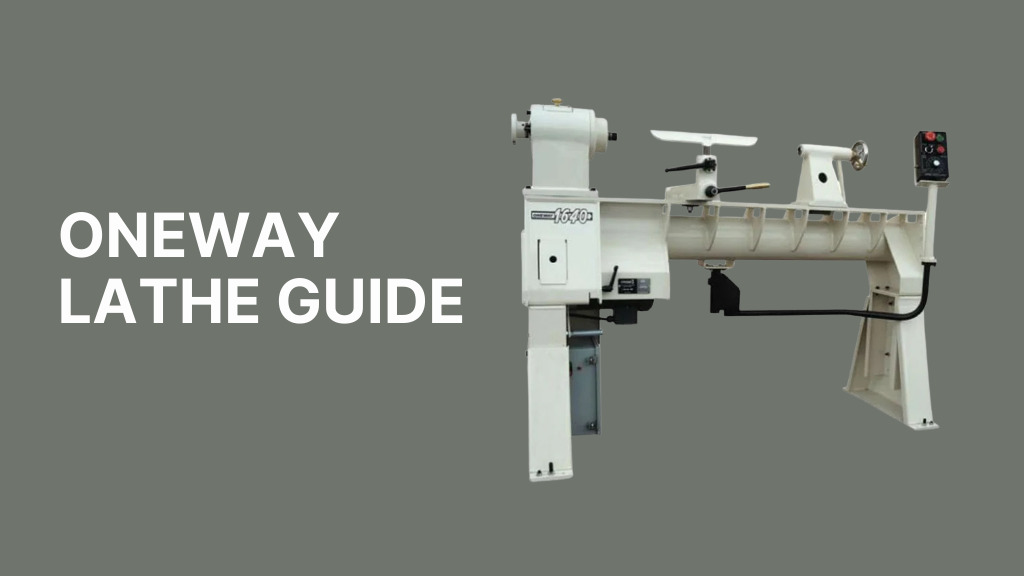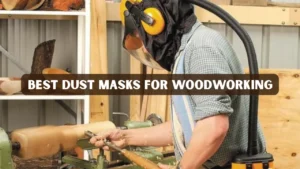Woodturning is one of the oldest and most respected woodworking crafts, and it requires a tool that delivers both precision and durability. The Oneway lathe has earned a reputation among hobbyists and professional woodturners alike as one of the most reliable machines ever built. Manufactured in Canada, Oneway lathes are known for their exceptional quality, thoughtful design, and decades-long performance.
In this comprehensive guide, we will explore everything you need to know about Oneway lathes: where they are made, what makes them unique, the different models available, comparisons with other brands, buying tips, maintenance guidelines, customer experiences, and answers to the most frequently asked questions. By the end, you will understand why Oneway lathes are often described as the “last lathe you’ll ever need to buy.”
Introduction to Oneway Lathes
The Oneway lathe is more than just a woodworking machine. It represents precision engineering, innovation, and a deep understanding of what woodturners need. Since the early 1990s, Oneway Manufacturing has built machines that not only stand the test of time but also inspire creativity in every piece of wood they shape.
Unlike mass-produced lathes, Oneway machines are built in smaller numbers with strict attention to detail. They are crafted from high-grade steel, engineered for stability, and equipped with innovative features that improve both safety and efficiency. Whether you are shaping bowls, spindles, pens, or large artistic sculptures, a Oneway lathe provides unmatched control and performance.
Where Are Oneway Lathes Made?
A common question asked by many woodturners is: Where are Oneway lathes made?
Oneway lathes are proudly manufactured in Stratford, Ontario, Canada. Unlike many other machinery companies that outsource production overseas, Oneway has kept its entire design and manufacturing process local. This allows them to maintain complete quality control, test each unit thoroughly, and ensure that every lathe meets professional standards.
By keeping production in Canada, Oneway benefits from:
- Strict quality assurance: Each machine is inspected and tested before leaving the factory.
- Innovation: Engineers are closely involved in production, allowing for continuous improvement.
- Durability: Use of Canadian steel and local craftsmanship ensures machines last for decades.
- Support: Customers benefit from strong after-sales service and easy access to spare parts.
For woodturners, this means peace of mind knowing their lathe was built with precision, pride, and a commitment to excellence.
The History of Oneway Manufacturing
Oneway Manufacturing was founded in 1990 by an engineer with a passion for woodworking. The company’s mission was simple: build the most durable, precise, and user-friendly lathes on the market. Starting with a small range of products, Oneway quickly gained attention from serious woodturners who were frustrated with vibration-prone, mass-produced machines that did not hold up under heavy use.
Over the decades, Oneway expanded its line of lathes, adding different sizes and accessories to meet the needs of beginners, hobbyists, and professional artists. The company also invested in advanced machining tools and welding processes to ensure every machine was built to the highest standard.
Today, Oneway Manufacturing is a trusted name worldwide and is often recommended by experienced woodturners as the gold standard for lathes.
Why Choose a Oneway Lathe?
Woodturners often choose a Oneway lathe because of its reliability, advanced design, and long-term value. While these machines come at a premium price, their performance and durability make them a worthwhile investment for serious hobbyists and professionals alike.
-
Unmatched Stability
One of the biggest advantages of a Oneway lathe is its exceptional stability. Built with heavy-duty steel frames, these lathes minimize vibration, even when turning large, irregular, or unbalanced pieces of wood. This stability not only makes turning smoother but also increases safety and precision during complex projects.
-
Precision Engineering
Oneway lathes are known for their precision-machined components, from the high-quality bearings to the accurately aligned spindle. This engineering ensures smooth operation, consistent cutting performance, and accurate results that are difficult to achieve with lower-grade lathes.
-
Long-Lasting Durability
Designed to withstand years of heavy use, Oneway lathes are often considered lifetime machines. Many owners report using them for decades with minimal maintenance, thanks to their solid construction and robust parts. This makes them a smart investment compared to cheaper alternatives that may wear out quickly.
-
Strong Resale Value
Unlike many woodworking tools that lose value over time, Oneway lathes maintain an impressive resale value. Because of their reputation for quality, used Oneway machines often sell quickly and at a strong price, making them less of an expense and more of a long-term asset.
-
Innovative Features
Oneway consistently integrates innovative design elements that improve usability and safety. Features such as:
- Swing-away tailstocks for easier workpiece setup
- Smart spindle locking systems for secure tool changes
- Variable speed controls for handling different materials and turning styles
These innovations save time, improve precision, and make the turning process more enjoyable.
-
Reliable Customer Support
Another reason woodturners trust Oneway is its excellent after-sales service. The company is known for responsive customer support, quick solutions to problems, and easy access to replacement parts. Many users highlight that Oneway’s customer service makes ownership stress-free compared to other brands.
Popular Models of Oneway Lathe
Oneway offers a wide range of lathes designed for different levels of woodturning, from hobbyists to professional artisans. Each model comes with unique specifications that meet the varying demands of workshop sizes, project complexity, and budget considerations. By offering compact options for beginners and powerful machines for professionals, Oneway has built a reputation for reliability and long-lasting performance. Below are the most popular models that woodturners often consider when choosing a lathe.
1. Oneway 1224 Lathe
The Oneway 1224 is a compact and versatile lathe, making it a favorite choice for beginners and hobbyists. It is specifically designed to fit in smaller workshops where space is limited, yet it does not compromise on precision or quality. Many woodturners appreciate its solid construction and the ability to handle a variety of smaller projects such as bowls, pens, and spindles. This model proves that even a small lathe can deliver professional-grade performance.
2. Oneway 1640 Lathe
The Oneway 1640 is a mid-sized lathe that strikes an excellent balance between size and functionality. It offers a larger capacity than the 1224, making it suitable for woodturners who want to expand their project range without investing in a very large machine. Its build quality ensures stability and smooth operation, which is essential for achieving clean and accurate cuts. Many users find this model ideal because it combines affordability, power, and versatility in one package.
3. Oneway 2036 Lathe
The Oneway 2036 is designed for serious woodturning enthusiasts who often work on larger projects. Its heavy-duty build gives it the strength and stability needed to turn bigger pieces, including chair legs, table components, and other furniture parts. Woodworkers who prefer tackling ambitious projects value this lathe for its durability and reliable performance. It is often chosen by those who want more capacity but still require a machine that is manageable in a medium-sized workshop.
4. Oneway 2436 Lathe
The Oneway 2436 is the company’s flagship lathe and is often described as the ultimate investment for professional woodturners. It is built to handle large-scale projects with ease, offering unmatched stability, precision, and durability. Many professionals consider it the last lathe they will ever need to purchase due to its long-lasting design and powerful capabilities. This model stands out as the top choice for those who require maximum performance and plan to use their lathe for advanced or commercial-level projects.
Comparing Oneway Lathe to Other Brands
When shopping for a lathe, many buyers naturally compare Oneway with popular names like Powermatic, Jet, and Laguna. While each brand has its own following, Oneway often stands out for its construction quality, precision, and long-term reliability. These differences make it a preferred choice for professionals who prioritize performance over price.
-
Construction Quality
Oneway lathes are built with heavy-duty steel frames, which deliver maximum strength and stability. Many competing brands, such as Jet or Powermatic, use cast iron in their designs. While cast iron is strong, it does not match the vibration-dampening abilities of Oneway’s thick steel. This gives Oneway a clear edge when working on large or unbalanced pieces.
-
Country of Origin
Another major distinction is where the machines are made. Oneway lathes are proudly manufactured in Canada, maintaining strict quality control at every step. In contrast, many competitors outsource production overseas, where cost-cutting may sometimes impact quality. For buyers who value craftsmanship and consistent standards, Oneway’s Canadian origin is a strong selling point.
-
Longevity and Reliability
Users frequently report that Oneway lathes deliver decades of dependable service with minimal issues. Their durable construction ensures that major repairs are rare, even with heavy daily use. While Powermatic and Laguna are also respected for longevity, Oneway’s track record of becoming a true “lifetime machine” sets it apart in the woodworking community.
-
Precision and Performance
Precision is another area where Oneway shines. Thanks to reduced vibration and carefully engineered components, these lathes produce smoother finishes and more accurate cuts. Competing brands can also achieve excellent results, but Oneway’s combination of engineering and stability often makes intricate or professional-level projects easier to achieve.
-
Price Considerations
The higher cost of Oneway lathes is often the only drawback mentioned by buyers. However, professionals and serious hobbyists usually justify the price by considering the long-term value. With reduced maintenance needs, strong resale value, and the ability to last for decades, Oneway lathes often prove to be the most cost-effective option over time.
Buying Guide: Choosing the Right Oneway Lathe
Investing in a Oneway lathe is a significant decision for any woodturner. With multiple models and configurations available, it’s important to select a machine that aligns with your goals, space, and budget. Below are the key factors to consider before making your purchase.
-
Budget Considerations
Oneway lathes come in a wide range of sizes and capacities, which directly affects the price. Smaller models are more affordable and well-suited for beginners or hobbyists, while larger professional models command a higher investment. Determine how much you are willing to spend and balance that against your current and future woodworking needs.
-
Workshop Space
Before buying, evaluate the footprint of the machine in your workshop. Oneway lathes are heavy-duty and take up more room than entry-level brands. Make sure you have enough space not only for the machine itself but also for comfortable movement and safe operation around it. Proper placement can also help minimize vibration and improve workflow.
-
Project Size
Your choice should also depend on the type of projects you plan to create. Smaller items like pens, bowls, and spindles require less capacity, while large sculptural pieces or furniture components demand a machine with greater swing and bed length. Choosing the right capacity ensures you won’t outgrow the lathe too quickly.
-
Experience Level
Beginners may find it easier to start with smaller Oneway models that offer precision and durability without the complexity of a full-scale machine. Experienced turners, on the other hand, often benefit from investing in a larger model right away, especially if they are confident about handling advanced projects.
-
Future Needs
Think ahead about your long-term woodworking plans. While a smaller lathe may suit your current projects, you might want to take on larger, more ambitious work in the future. Investing in a machine with more capacity now could save you from having to upgrade later, making your purchase more cost-effective in the long run.
Maintaining Your Oneway Lathe
Oneway lathes are built for durability, but like all machines, they require regular maintenance to perform at their best.
Maintenance tips include:
- Cleaning the bed and headstock after each use
- Lubricating bearings and moving parts
- Checking belts for wear and replacing them as needed
- Ensuring the machine is leveled correctly
- Storing in a clean, dry environment to avoid rust
With proper care, these lathes often last a lifetime.
Real-World Experiences from Oneway Lathe Users
Oneway lathes have developed a loyal following in the woodworking community. Many users describe them as life-changing investments.
One professional turner explained that the stability of their Oneway 2436 allowed them to work with larger, irregular pieces that would have been unsafe or frustrating on other machines. Another hobbyist shared that their Oneway 1640 still performs like new after 15 years of consistent use.
Such testimonials reinforce the brand’s reputation as a trusted choice for serious woodturners.
Conclusion
The Oneway lathe is more than just a woodworking tool. It is a statement of craftsmanship, innovation, and long-term reliability. Proudly manufactured in Canada, Oneway machines are designed to last for decades, offering woodturners unmatched stability, precision, and value.
Whether you are a beginner exploring your first projects or a seasoned professional seeking a lifetime machine, Oneway has a model that fits your needs. With glowing reviews, proven performance, and a strong reputation, investing in a Oneway lathe may very well be the smartest decision you can make for your woodworking journey.
FAQs
Are Oneway lathes worth the investment?
Yes. Their durability, precision, and resale value make them one of the best long-term investments for woodturners.
What models are available?
The main models include the 1224, 1640, 2036, and 2436, each designed for different project sizes and needs.
How long do Oneway lathe last?
With proper maintenance, they can last decades. Many users report using the same machine for 20 or more years.
Where are Oneway lathe made?
They are manufactured in Stratford, Ontario, Canada, where the company maintains strict quality control.
Do Oneway lathes come with warranty and support?
Yes. Oneway offers warranty protection and a reputation for excellent after-sales service.




